If you're aiming for a career in management consulting, then you've undoubtedly heard of the "MBB" firms: McKinsey & Company, Boston Consulting Group (BCG), and Bain & Company. These firms represent the pinnacle of the consulting industry, often synonymous with prestige, challenging work, and rapid career advancement. But what exactly sets these firms apart? How did they rise to the top, and what can you expect if you're looking to join their ranks? Let’s dive in and explore the historical backgrounds, unique cultures, and insider tips that could help you land an offer at one of these top consulting firms.
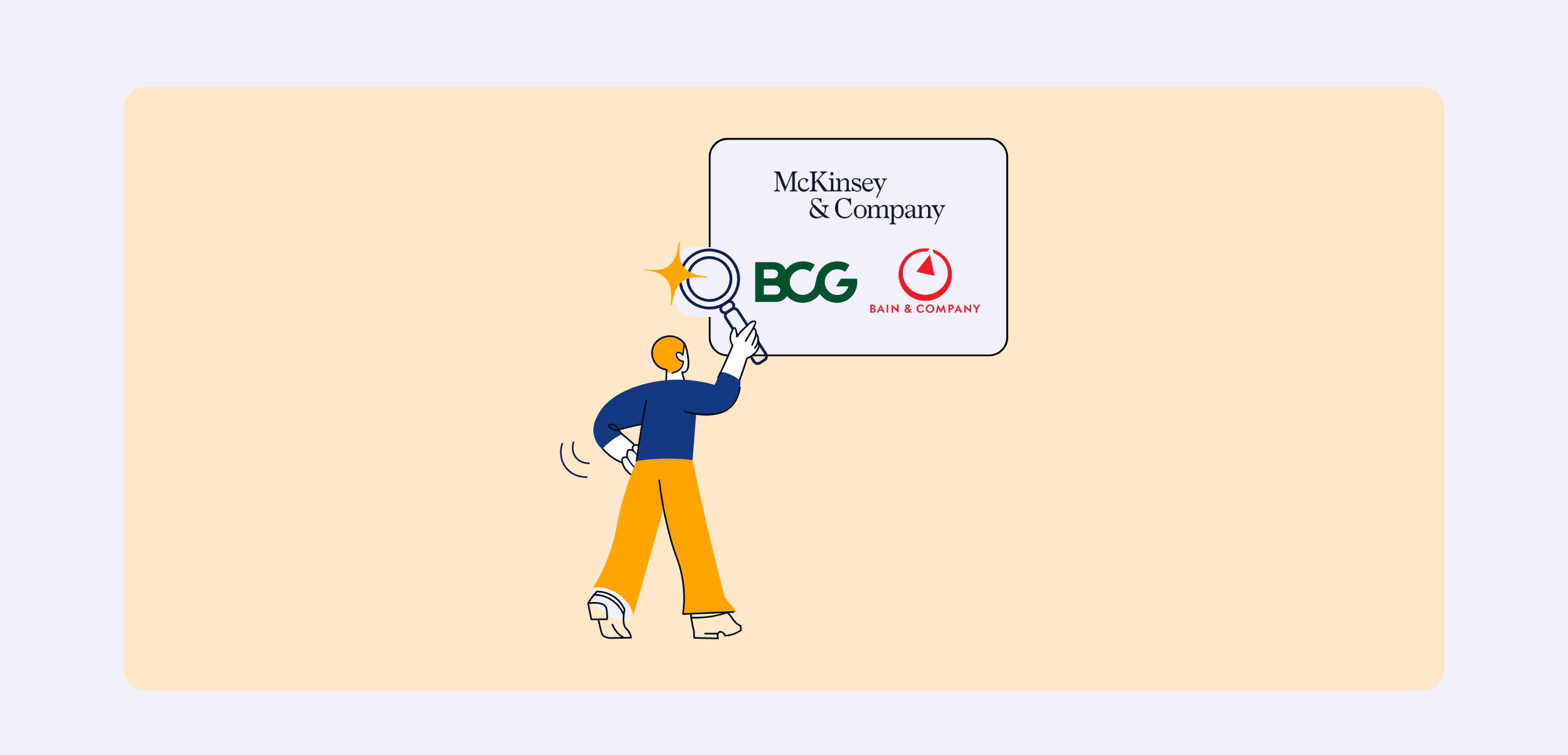
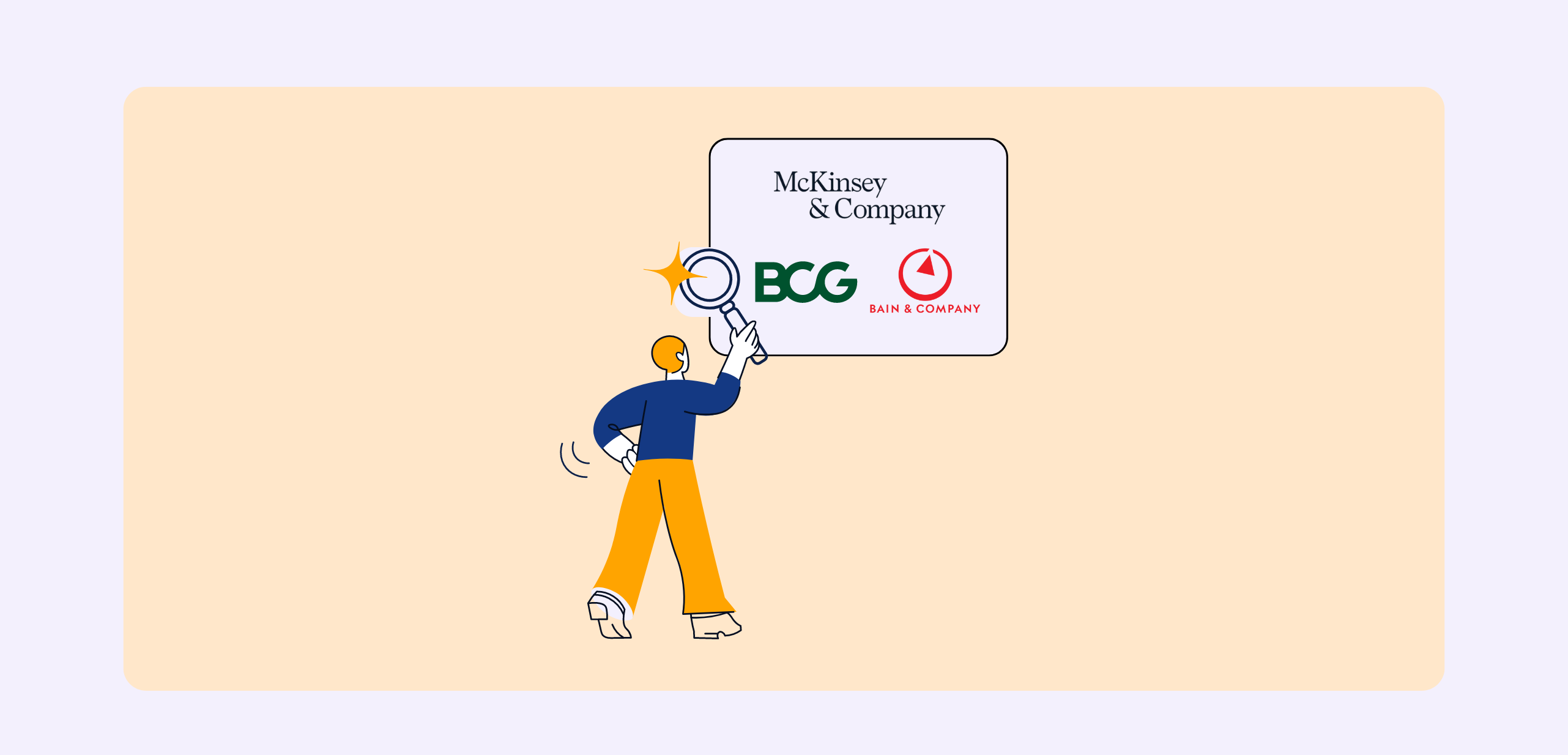
The Ultimate Guide to MBB: McKinsey, BCG, and Bain

McKinsey & Company: The Pioneer of Management Consulting
McKinsey & Company, often referred to simply as "McKinsey," is the oldest and perhaps the most prestigious of the MBB firms. Founded in 1926 by James O. McKinsey, a professor at the University of Chicago, the firm was initially established to bring scientific management principles to the business world. James McKinsey’s vision was to apply rigorous analysis and a data-driven approach to solve complex business problems—principles that remain at the core of the firm’s methodology today.
Over the decades, McKinsey has built a reputation for being a trusted advisor to leading businesses and governments around the world. With over 30,000 employees and offices in more than 130 cities, McKinsey operates on a truly global scale.
Fore more insight on McKinsey, check out the following articles:
👉 McKinsey Case Interview
👉 McKinsey Internship
👉 McKinsey PEI
What’s the Corporate Culture at McKinsey Like?
McKinsey’s culture is often described as "up or out", which refers to the firm’s performance-driven environment. Consultants are expected to deliver high-quality work consistently, and those who do are rewarded with rapid career progression. Those who don’t may find themselves encouraged to pursue opportunities elsewhere. However, this culture is also one of mentorship and development, with a strong emphasis on continuous learning. The firm invests heavily in the training and development of its people, offering numerous opportunities for personal and professional growth.
What Sets McKinsey Apart from BCG and Bain?
- Industry Leader: McKinsey is often considered the most prestigious of the three, with a long history of advising Fortune 500 companies and governments around the world.
- Global Reach: With offices in over 130 cities, McKinsey has the most extensive global network of the MBB firms. This can be particularly appealing if you're interested in working on international projects or eventually relocating to another country.
- Diverse Client Portfolio: McKinsey serves a broad range of industries, from healthcare to financial services to public sector work. This variety can provide exposure to different sectors early in your career.
For Which Candidates Is McKinsey Ideal For?
- Aspiring Global Leaders: If you’re looking for a truly global career and want to work on high-impact projects that influence major corporations and governments, McKinsey could be the right choice.
- Structured Thinkers: McKinsey’s problem-solving approach is highly methodical and data-driven, so if you thrive in structured environments, you might find this a great fit.
Fun Facts about McKinsey
- McKinsey alumni are often called “McKinseyites” and they form one of the most powerful networks in the business world. Former McKinsey consultants have gone on to hold CEO positions at major companies, serve in government, and lead non-profit organizations.
- McKinsey publishes a well-known business journal called the McKinsey Quarterly. First published in 1964, it offers deep insights into management practices and trends. It’s considered a must-read for business leaders and has been cited in academic and industry research for decades.
- McKinsey is often referred to as one of the most secretive firms in the world. The consultancy is known for its tight-lipped approach to client work, with consultants often working under strict confidentiality agreements. This culture of discretion extends to the firm's own internal operations, which are rarely disclosed to the public.
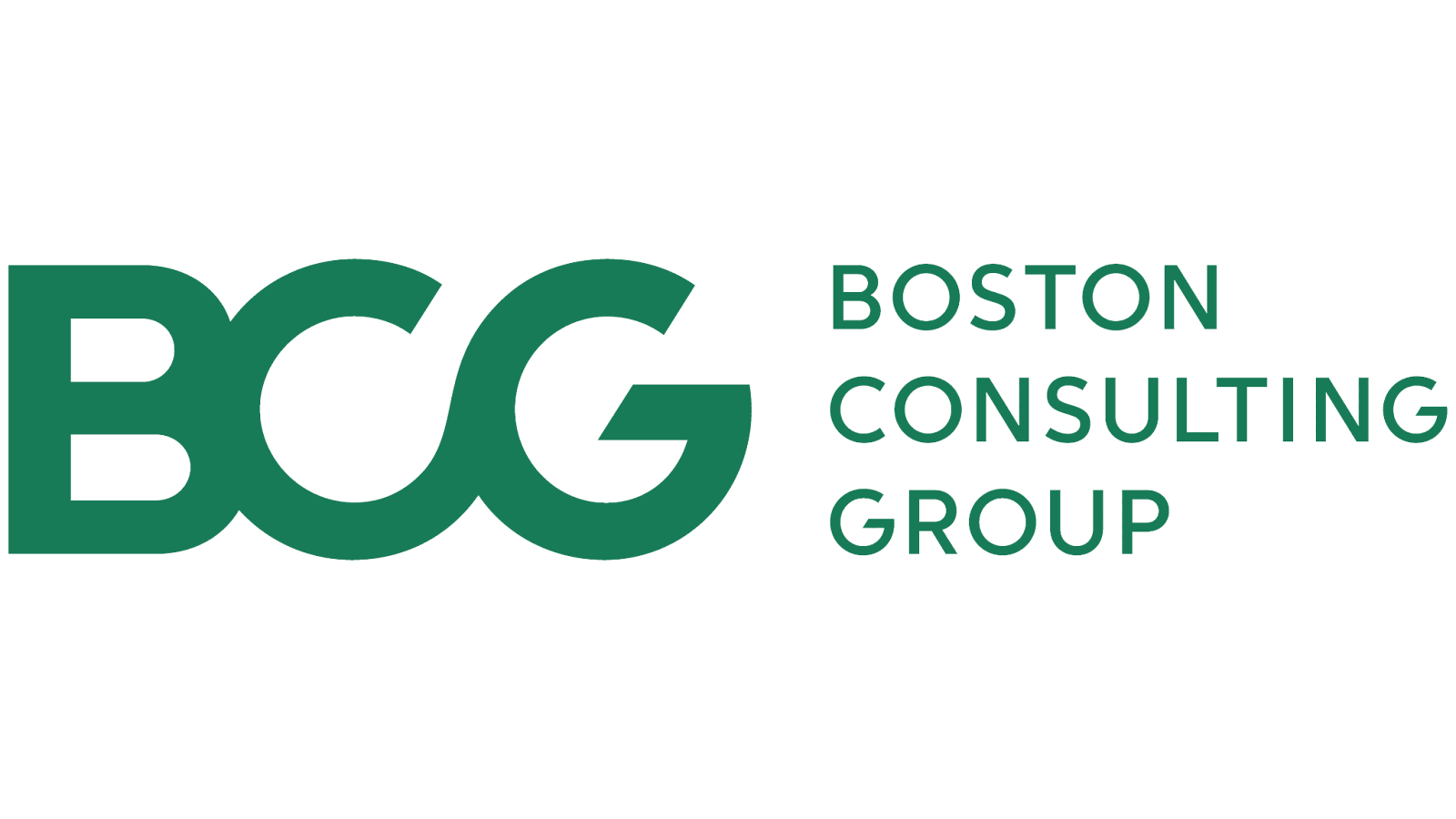
Boston Consulting Group (BCG): The Innovator in Business Strategy
The Boston Consulting Group, or BCG, was founded in 1963 by Bruce Henderson, a former McKinsey consultant with a vision to change the way businesses thought about strategy. From its inception, BCG set itself apart by focusing on innovative, research-based approaches to business challenges. One of BCG’s most significant contributions to the world of business strategy is the Growth-Share Matrix, a tool that has helped countless companies allocate resources more effectively.
BCG is known for its intellectual strength and emphasis on thought leadership. The firm regularly publishes groundbreaking research on business trends and strategies, which is widely respected and cited in academic and business circles alike.
Learn more about BCG in the following articles:
👉 BCG Case Interview Guide
👉 BCG Online Case – 10 Key Tips to Beat the Chatbot
What’s the Corporate Culture at BCG Like?
BCG fosters a collaborative environment where creativity and innovative thinking are highly valued. The firm’s culture is less hierarchical than that of its peers, with an emphasis on teamwork and open communication. BCGers, as they are called, often describe the firm as a place where individual contributions are recognized and where employees are encouraged to think outside the box.
What Sets BCG Apart from McKinsey and Bain?
- Innovative Thought Leadership: BCG is known for its cutting-edge research and innovative frameworks, such as the Growth-Share Matrix and the Experience Curve. The firm regularly publishes influential business insights and fosters a culture of intellectual curiosity.
- Collaborative Culture: BCG’s relatively flat organizational structure promotes collaboration and creativity. Consultants at BCG are encouraged to think outside the box and contribute to the firm’s thought leadership.
- Industry Expertise: BCG has a strong focus on industries like technology, healthcare, and energy. If you have a particular interest in one of these areas, BCG's deep expertise could be a significant advantage.
For Which Candidates Is BCG Ideal For?
- Creative Problem Solvers: If you enjoy coming up with innovative solutions to complex problems and value intellectual rigor, BCG’s culture might be a good match.
- Collaborative Team Players: BCG emphasizes teamwork and open communication, making it a great choice if you thrive in a collaborative environment.
Fun Facts about BCG
- BCG’s alumni network is incredibly influential, much like that of McKinsey. Notable BCG alumni include Indra Nooyi, the former CEO of PepsiCo, and Jim Koch, founder of the Boston Beer Company.
- In the 1960s, BCG introduced the "Experience Curve", a concept that suggests that the more experience a company has in producing a particular product, the lower its costs will be. This idea revolutionized pricing strategies and helped BCG establish itself as a thought leader in the field.
- Named after its founder, the BCG Henderson Institute is the firm’s think tank and research arm. It focuses on developing new business theories and insights, contributing significantly to the firm’s reputation as an innovator in strategy consulting.

Bain & Company: The Relationship Builder
The youngest of the MBB firms, Bain & Company was founded in 1973 by Bill Bain and a group of former BCG consultants. Bain was established with a clear mission: to provide more than just analysis and recommendations to clients, but to focus on driving tangible, measurable results. This results-oriented approach has become a hallmark of Bain’s work and is one of the reasons clients often stick with the firm for the long haul.
Bain is known for its "True North" values, which emphasize integrity, client impact, and a commitment to always do what is right. These values are not just marketing slogans; they are deeply ingrained in the firm’s culture and influence everything from how consultants approach client engagements to how the firm interacts with its employees.
For further insights, learn more here:
👉 Bain & Company Employer Profile
👉 Bain Case Interview Guide
What’s the Corporate Culture at Bain Like?
Bain’s culture is often described as supportive and collegial. The firm places a strong emphasis on building relationships, both with clients and within the firm. Bainies, as they are affectionately known, often talk about the "Bain family", a reflection of the strong bonds that are formed between colleagues. Bain is also known for its commitment to social impact, with a significant portion of the firm’s work dedicated to pro bono projects and sustainability initiatives.
What Sets Bain Apart from McKinsey and BCG?
- Client Relationships: Bain is known for building strong, long-term relationships with its clients. The firm often partners with clients for years, helping them implement strategies and achieve sustainable results.
- Entrepreneurial Spirit: Bain’s culture is highly entrepreneurial, with a strong emphasis on taking initiative and driving impact. The firm also has a significant focus on private equity, making it a leader in this space.
- Supportive Environment: Bain is often praised for its collegial and supportive culture. The "Bain family" is a common phrase used by employees, reflecting the close-knit community within the firm.
For Which Candidates Is Bain Ideal For?
- Impact-Driven Individuals: If you’re passionate about seeing your work translate into real-world results and enjoy working closely with clients to achieve these outcomes, Bain could be the best fit.
- Entrepreneurs at Heart: Bain’s entrepreneurial culture is perfect for those who like to take ownership of projects and drive innovation within a supportive framework.
Fun Facts about Bain
- Bain has a long-standing tradition known as “Bain World Cup”, an annual soccer tournament that brings together Bainies from all over the world. It’s a chance for employees to bond, show off their athletic skills, and, of course, have some fun.
- Bain has a strong focus on delivering measurable results. In fact, the firm is known for aligning its fees with the achievement of specific client goals, a practice known as “results-based pricing.”
- Bain was a pioneer in consulting for private equity firms, helping them with due diligence and portfolio company performance improvement. Today, Bain’s Private Equity Practice is one of the largest and most influential in the industry, advising on deals worth billions of dollars each year.
How to Choose the Right MBB Firm for You
Choosing the right MBB firm comes down to understanding your own career goals, work preferences, and values. Here are some factors to consider when making your decision:
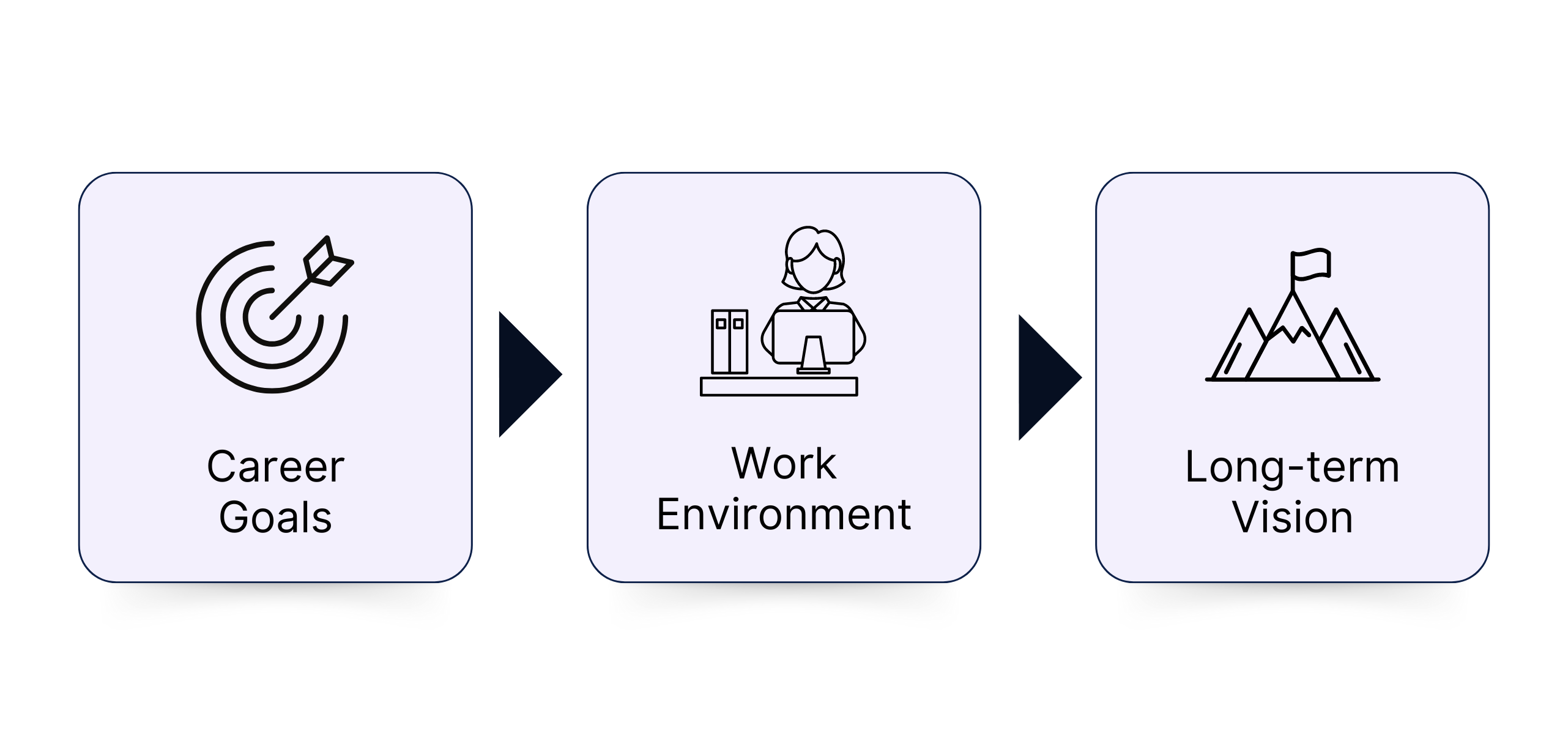
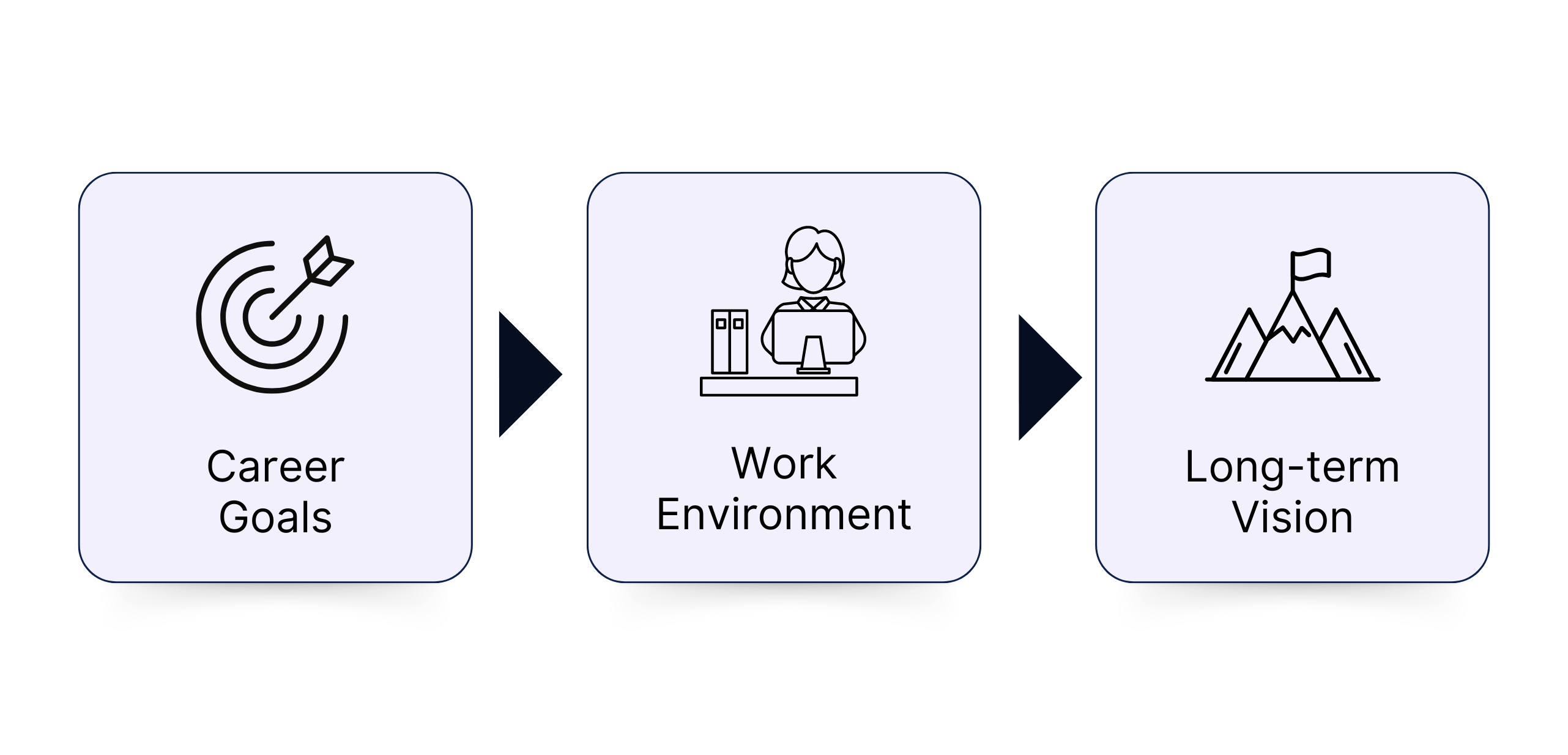
🎯 Start with your career goals:
If you’re drawn to the idea of working globally and want to get to know a broad range of industries, McKinsey’s extensive international presence might be the most appealing. Their reputation as a global powerhouse offers unparalleled opportunities to engage with high-profile clients around the world.
On the other hand, if you’re fascinated by intellectual challenges and enjoy exploring new ideas, BCG’s focus on thought leadership and innovative frameworks might resonate more with you. BCG is the place where business meets academics, offering a creative environment for solving business problems of any kind.
Meanwhile, if your passion lies in driving sustainable results and building deep client relationships, Bain’s results-driven approach and entrepreneurial spirit could be your best match. Bain is particularly strong in areas like private equity, making it an excellent choice if you’re interested in working closely with clients to create lasting impact.
🏢 Consider the work environment that suits you best:
McKinsey’s structured and methodical problem-solving approach might appeal to those who thrive in highly organized environments. Their data-driven methodology requires a mindset that values precision and order.
Conversely, if you prefer a collaborative and creative work environment, BCG might be more your style. BCG encourages open communication and teamwork, making it a great fit if you enjoy brainstorming sessions and cross-disciplinary collaboration.
Bain offers a unique blend of support and entrepreneurship. If you’re someone who enjoys taking initiative and working within a close-knit community, Bain’s supportive culture and focus on long-term client relationships could be the ideal setting for your career.
🏔️ Think about your long-term vision:
The strength of a firm’s alumni network is another important factor to consider, as it can significantly influence your career trajectory. McKinsey, for example, has one of the most powerful alumni networks in the business world, which can open doors to leadership roles across various industries.
Additionally, cultural fit is crucial. You’ll want to choose a firm where you not only fit in professionally but also feel comfortable and supported on a personal level. Speaking with current and former employees can give you valuable insights into the day-to-day culture at each firm, helping you determine where you’ll fit in the best.
In essence, while all three firms offer extraordinary career opportunities, the best choice for you will depend on where you see yourself growing. Reflect on what you value most in a career, do thorough research, and engage with people who’ve walked the path before you. With these insights, you’ll be well-positioned to choose the firm that’s right for you and set yourself on a path to success in the consulting world.
For more insights, the following Q&A threads might also be interesting to you
👉 Is it difficult to join McKinsey BCG or Bain as an experienced professional?
👉 Difference in what Bain is looking for versus what McKinsey and BCG are looking for
👉 What is the difference between McK, BCG and Bain – so called “MBB” firms?
The Application Process: What It Takes to Join MBB
Now that you know a bit more about each of these firms, let’s talk about how you can actually get your foot in the door. The application process for MBB is highly competitive, with thousands of applicants for just a few spots. But don’t be discouraged—with the right preparation, you can set yourself apart from the crowd.
👉 Find out more about the recruiting process in consulting.
The Resume and Cover Letter
Your resume and cover letter are your first chance to make a strong impression. MBB firms are looking for candidates with strong academic records, relevant work experience, and a demonstrated ability to lead and solve problems. Highlight your achievements and be sure to quantify your impact wherever possible (e.g., "Led a team of 5 to increase sales by 20%").
Your cover letter should be tailored to each firm and clearly explain why you are interested in consulting, why you want to work at that specific firm, and what unique skills and experiences you bring to the table.
The Case Interview
The case interview is the hallmark of the MBB recruiting process. During a case interview, you’ll be presented with a business problem and asked to develop a solution on the spot. This is designed to test your problem-solving skills, analytical thinking, and ability to work under pressure.
How to Prepare:
- Practice, Practice, Practice: The best way to prepare for case interviews is to practice. Use our case library and conduct mock interviews with peers to get ready for the final day. On our meeting board, you will always find like-minded case partners to prep with.
- Frameworks Are Your Friend: Having a few go-to frameworks (e.g., SWOT analysis, Porter’s Five Forces) can help you structure your thinking.
- Think Aloud: Interviewers want to see how you think, so be sure to verbalize your thought process as you work through the case. Again, practicing with peers or working with a coach will be the best preparation for this.
The Fit Interview
In addition to the case interview, you’ll also have one or more "fit" interviews. These are designed to assess whether you’ll be a good fit for the firm’s culture and whether you have the personal qualities that MBB firms value, such as leadership, teamwork, and communication skills.
How to Prepare:
- Know Your Story: Be ready to discuss your resume in detail, including your motivations, key achievements, and any challenges you’ve overcome.
- Demonstrate Cultural Fit: Research each firm’s culture and think about how your own values and experiences align with theirs.
- Prepare for Behavioral Questions: Expect questions like "Tell me about a time you led a team" or "Describe a situation where you had to overcome a significant challenge." Use the STAR method (Situation, Task, Action, Result) to structure your answers.
👉 Check out the "Integrated FIT Guide for MBB" by our expert Clara to learn more about the specifics of the fit interview at McKinsey, BCG, and Bain.
Final Tips: How to Stand Out
Landing a job at McKinsey, BCG, or Bain is not easy, but with the right approach, you can increase your chances of success. Here are a few final tips to help you stand out in the application process:
- Network: Use your connections to get in touch with current consultants. Informational interviews can give you valuable insights and potentially a referral, which can significantly boost your chances.
- Tailor Your Application: Don’t send the same resume and cover letter to each firm. Take the time to understand what each firm values and tailor your application accordingly.
- Be Yourself: It’s easy to get caught up in trying to fit a mold, but remember that MBB firms are looking for individuals who bring unique perspectives and experiences. Be authentic and let your personality shine through.
- Stay Resilient: The MBB application process can be tough, and rejection is not uncommon. If at first you don’t succeed, take the feedback, learn from the experience, and try again.
In summary, McKinsey, BCG, and Bain offer incredible career opportunities for those who are up for the challenge. Understanding each firm’s history, culture, and what they’re looking for in candidates can help you succeed in the competitive application process and increase your chances of landing an offer. With preparation, perseverance, and a bit of luck, you could be on your way to joining the ranks of the consulting elite. Good luck!
Continue to Learn





